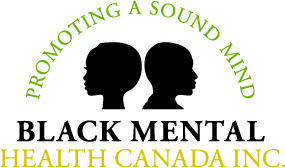Let’s Discuss the Importance of Self-Esteem for Mental Health
Self-esteem is linked to several positive outcomes, including greater happiness, increased confidence, improved productivity, and more meaningful relationships.
But what is self-esteem, and why is it vital for mental health?
Self-Esteem vs. Confidence: What’s the Difference?
Your self-esteem represents how you feel about yourself. A healthy sense of self-worth includes feeling good about yourself and believing in your skills. It involves self-compassion and a developed sense of self-worth.
People often mix up self-esteem and confidence. Even though these two terms are related, self-esteem and confidence are different.
When you have healthy confidence, you believe in yourself and your ability to do something well. Your knowledge, abilities, and experiences contribute to your confidence, so your self-assurance comes from what you know and can do. On the other hand, self-esteem refers to how you perceive yourself in general.
What Effect Does Your Self-Esteem Have on Your Mental Health?
People with low self-esteem have negative feelings about themselves, believing they don’t deserve love, respect, and success.
Low Self-Esteem is Linked to Anxiety and Depression
There is a two-sided relationship between mental illness and low self-esteem. People who struggle with anxiety or depression may develop low self-esteem due to poor health outcomes and the social stigma attached to mental illness.
African Americans and other minorities often face a stigma that can make it hard for them to feel good about themselves. As a result, many people of colour in Canada struggle to fulfill academic and professional aspirations, obtain respectable employment and housing, and contribute to society, which leads to poor self-esteem and mental health issues.
Also, if you have low self-esteem, you probably struggle with negative self-talk that creates distorted thinking and twisted beliefs about your self-worth. Such a mindset is strongly correlated with anxiety and depression.
Your negative thinking patterns affect your emotions and behaviour, causing feelings of anxiety, depression, isolation, and loneliness.
Poor Self-Esteem Can Lead to Toxic Relationships
Low self-esteem can make you feel insecure about yourself. On the other hand, healthy self-esteem means that you know who you are and value yourself. Unfortunately, your self-hatred can become a magnet, attracting toxic people and getting stuck in unhealthy relationships.
However, there are several effective strategies for boosting your self-esteem. Overcoming self-criticism and increasing self-acceptance will help you change your perspective on yourself, other people, and your life prospects.
How to Increase Your Self-Esteem
Overcoming low self-esteem can enhance your mental health, happiness, and well-being. The strategies listed below might help you improve your self-esteem and mental health.
Break Free from Negative Thoughts
Avoid self-criticism. The first step to overcoming self-judgment is awareness. Journaling can help you understand what triggers your inner critic. Then, without judgment, question and evaluate your thoughts and identify negative thought patterns; this will help silence your inner critic.
Practice Self-Compassion
Self-compassion is essential to self-esteem because it means treating yourself with the same kindness and understanding you usually show to other people. In addition, self-compassion can help you stop feeling like a failure by reminding you that mistakes are a normal part of the human experience. As a result, you will learn to forgive yourself and others and begin to love yourself the way you deserve.
Reference articles
https://www.psychologytoday.com/ca/basics/self-esteem
https://www.mind.org.uk/information-support/types-of-mental-health-problems/self-esteem/about-self-esteem/
https://www.nami.org/Blogs/NAMI-Blog/July-2016/Why-Self-Esteem-Is-Important-for-Mental-Health#:~:text=Someone%20with%20low%20self%2Desteem,potentially%20dangerous%20way%20to%20live.
https://www.ncbi.nlm.nih.gov/pmc/articles/PMC5747942/
Contact us today for more info!



